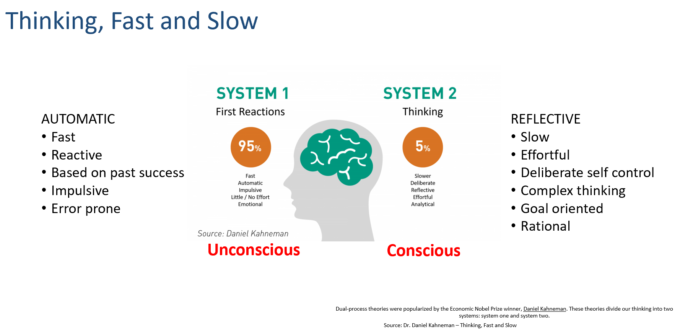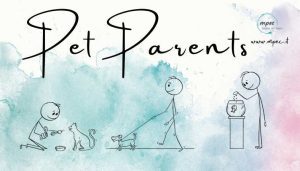In the rapidly evolving business landscape, storytelling emerges not just as a skill but as a strategic tool that can significantly enhance how we connect, communicate, and convert. From engaging potential investors to building a loyal customer base, the power of a well-crafted story transcends conventional marketing and communication strategies, embedding deep connections with audiences that facts and figures alone cannot achieve. We are looking into the essence of storytelling within a professional context, exploring its applications, structures, and the key language elements that make business narratives compelling and impactful.
Why Storytelling is a Skill You Absolutely Must Master
In a world awash with data, statistics, and empirical evidence, one might wonder why the ancient art of storytelling still holds such sway in the realms of communication, education, and persuasion. Drawing on insights from luminaries such as Daniel Kahneman, Nobel Prize-winning psychologist and author of “Thinking, Fast and Slow”, we uncover why storytelling is not just a skill to be appreciated but an essential tool to be mastered.
The Power of Narrative Over Numbers
Have you ever found yourself more moved by a single person’s story than by a barrage of statistics? Kahneman explains that humans are predominantly intuitive thinkers, driven by System 1 thinking, which is fast, automatic, and fuelled by emotions. This system is effortlessly engaged by stories, which are more accessible and emotionally resonant than abstract data. But why is this the case?
The Science Behind the Story
Kahneman’s research suggests that our brains are wired to understand and remember information more effectively when it’s presented as part of a narrative. Stories stimulate the brain and personalise the information, making it more relatable and memorable. This is why, throughout history, societies have used storytelling as a primary means of sharing knowledge, traditions, and laws from generation to generation.

Building Bridges with Your Audience
Are you seeking to connect with your audience on a deeper level? Storytelling allows you to do just that. It builds empathy and fosters a sense of shared experience, breaking down the barriers between the teller and the listener. When you tell a story, you’re not just sharing information; you’re inviting your audience into your world, creating a bridge of understanding that facts alone cannot build.
Enhancing Persuasion Through Engagement
Why do advertisements that tell a story often feel more persuasive? It’s because narratives engage our emotions, and our decisions are profoundly influenced by our emotional responses. Kahneman’s work highlights how emotional engagement can significantly enhance the persuasiveness of a message. Through storytelling, you’re not just presenting an argument; you’re weaving a narrative that can subtly influence thought and behaviour.
Cultivating a Critical Life Skill
In considering the necessity of mastering storytelling, one must acknowledge its role in leadership, teaching, marketing, and even everyday interactions. The ability to craft and convey a compelling story is invaluable in persuading, teaching, and inspiring others. It is a skill that transcends professional boundaries and plays a crucial role in personal development and social interaction.
Are You Ready to Master the Art of Storytelling?
As we navigate through the complexities of human cognition and communication, the significance of storytelling becomes unmistakably clear. It’s an art form that enhances our capacity to connect, persuade, and understand one another on a profound level. So, the question remains: are you ready to harness the power of storytelling and transform the way you communicate?
Ready To Talk About Storytelling? Here are some great questions for you!
1. What makes a story compelling in a business context?

Key Vocabulary:
- Engaging: Capturing and holding one’s interest fully.
- Relatable: Enabling a person to feel that they can relate to it.
- Persuasive: Good at persuading someone to do or believe something.
- Impactful: Having a major impact or effect.
Crafting Your Answer: Consider talking about how the relatability and engagement of a story can influence consumer behaviour or stakeholder opinions. Discuss the role of persuasive storytelling in marketing or leadership.
2. Can you share an example of effective storytelling by a brand or company?
Key Vocabulary:
- Brand narrative: The story that connects a brand with its audience.
- Emotional appeal: Targeting the emotions of the audience to elicit a response.
- Customer journey: The complete sum of experiences that customers go through when interacting with your company and brand.
- Testimonial: A formal statement testifying to someone’s character and qualifications.
Crafting Your Answer: Mention a specific brand and describe its brand narrative, focusing on how it uses emotional appeal. Discuss how this narrative supports the customer journey or is supported by testimonials.
3. How does storytelling contribute to a brand’s identity?
Key Vocabulary:
- Cohesive: Forming a united whole.
- Authenticity: The quality of being authentic or genuine.
- Brand values: The core principles or standards that guide a brand’s actions and business strategies.
- Differentiation: The process of distinguishing a product or business from its competitors.
Crafting Your Answer: Explore the relationship between storytelling and brand identity, emphasising how a cohesive and authentic story can reflect brand values and aid in differentiation.

4. What role does the audience play in shaping a business story?
Key Vocabulary:
- Target audience: The intended group of people at whom an advertisement or campaign is aimed.
- Feedback: Information about reactions to a product, a person’s performance of a task, etc., used as a basis for improvement.
- Engagement: The act of engaging or the state of being engaged.
- Perception: The way in which something is regarded, understood, or interpreted.
Crafting Your Answer: Discuss how understanding the target audience and their feedback can shape a business story. Reflect on how audience engagement and perception can impact the effectiveness of a story.
5. In what ways can storytelling be used to overcome business challenges?
Key Vocabulary:
- Overcome: Succeed in dealing with a problem or difficulty.
- Resilience: The capacity to recover quickly from difficulties; toughness.
- Innovation: The action or process of innovating; a new method, idea, product, etc.
- Crisis management: The process by which an organization deals with a disruptive and unexpected event that threatens to harm the organization or its stakeholders.
Crafting Your Answer: Consider examples of how storytelling can demonstrate resilience and innovation in times of crisis. Discuss storytelling as a tool in crisis management and overcoming business challenges.
Looking for some practice?
This handout is designed to equip learners with the vocabulary and structure needed to create engaging and persuasive business stories.
By understanding the key elements of storytelling and integrating them into your narratives, you can transform the way your business communicates, connects, and resonates with your audience. From setting the scene to calling your audience to action, this short document provides a comprehensive toolkit for anyone looking to master the art of storytelling in a professional context.
The Magical Science of Storytelling (Viral Ted Talk)
Why is Storytelling so powerful? And how do we use it to our advantage? Presentations expert David JP Phillips shares key neurological findings on storytelling and with the help of his own stories, induces in us the release of four neurotransmitters of his choice.
#BusinessStorytelling #StorytellingInBusiness #EngagingNarratives #BrandStorytelling #StorytellingSkills #ProfessionalStorytelling #CraftYourStory #StorytellingWorkshop #BusinessCommunication #NarrativeStrategy #EmotionalBranding #StorytellingForBrands #EngageYourAudience #StorytellingMagic #CorporateStorytelling #InnovativeStorytelling #StorytellingTips #PowerfulStorytelling #StorytellingTechniques #TransformWithStories #ConnectThroughStories #StorytellingForSuccess #MarketingStories #EntrepreneurialStorytelling #StoryDrivenBranding #BusinessNarratives #StrategicStorytelling #InspireWithStories #StorytellingEssentials #MPECStorytelling




